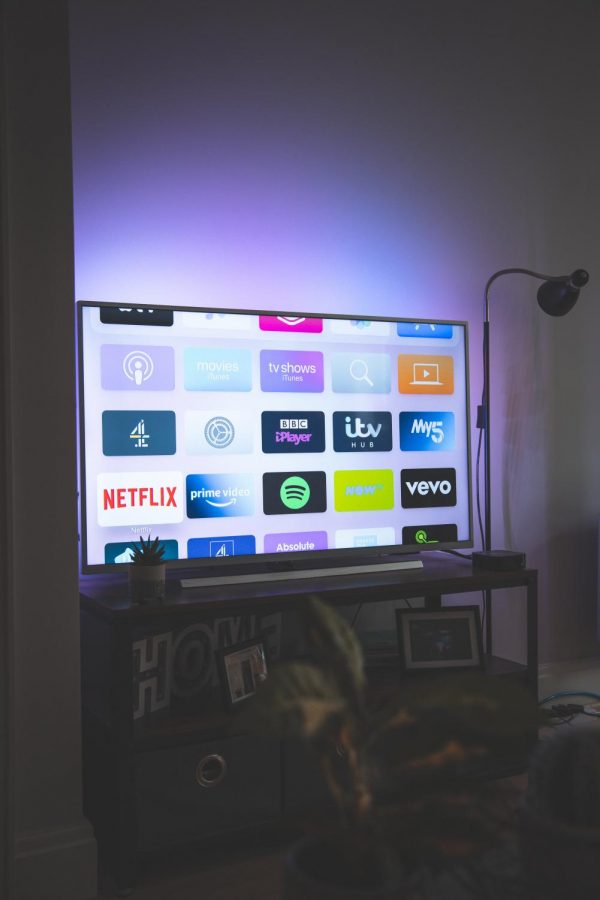Why you just watched that one episode for the seventh time
The phenomenon of comfort shows, and why we’re drawn to them
More stories from Beth Stein
Too many options
As I sat down to watch the newest season of Lucifer on Netflix, my eyes glanced over all of the shows, watched and unwatched, on my list.
Despite my eagerness to see the conclusion to everyone’s favorite crime solving devil show, my mouse hovers over Supernatural and Schitt’s Creek longer than necessary.
I feel drawn to these shows that I’ve already watched, to again rewatch, and I cannot fully comprehend why.
Over the past couple of years, the concept of comfort shows has become widely popular. Comfort shows are shows that people watch, often repeatedly, to relieve stress or make themselves feel happy.
Stuck at home in quarantine, isolated away from the world, political turmoil and uncertain public health plaguing our everyday lives, people have been searching for a distraction.
For many, comfort came from rewatching their favorite shows. I, for one, spent the early days of lockdown rewatching my favorite episodes of Parks and Recreation, a show which was previously on Netflix, but now can be found on the NBC streaming service Peacock.
Before parting ways for college, my friends and I rewatched both parts of Harry Potter and the Deathly Hallows. I even considered rereading the books, but decided against that particular commitment.
I did however, reread the the Thief series, by Megan Whalen Turner, for what might be the eighth time. And I know I’m not the only one.
People have been re-reading their favorite books and digging up familiar music albums to listen to on repeat, despite the constant stream of new content.
So, what is it that makes us discard newer, unknown media and to re-experience stories that cannot possibly surprise us?
The most obvious answer is we know we like it.
Scrolling through the never ending lists of suggestions, generated by whichever streaming platform(s) used, can be incredibly draining and extremely time-consuming.
Yet, the shows that we’ve watched a dozen times are tried and true, and we still enjoy them. There’s little risk in investing is something we already know won’t disappoint us.
There is also comfort in familiarity.
“Generally speaking, things that are familiar are likely to be safer than things that are not,” Raj Raghunathab, a professor of marketing at the University of Texas, said in Psychology Today. “If something is familiar, we have clearly survived exposure to it, and our brain, recognizing this, steers us towards it.”
While logically we know that there is no real danger in a new book or TV show, we may subconsciously approach it in the same way as something that could be a threat.
Therefore, it is far easier, feels safer and is more comfortable to watch the shows we’ve “survived” already.
In the midst of the COVID-19 pandemic, safety and comfort can feel hard to come by in the real world.
By now, we’ve all heard about the increased rates of depression and mental illness in 2020 and 2021. Even people without any diagnosed mental illnesses suffered from the isolation and uncertainty of a world-wide pandemic.
While trying to escape reality is probably not the most effective way to bolster one’s mental health, comfort can be what gets you through the day.
If that means watching a couple episodes of a Netflix show you’ve seen multiple times already, I say go for it.
There is also something to be said about the effects of nostalgia.
Rewatching shows that we watched in happier times or with loved ones can induce a sense of nostalgia.
This feeling, in turn, can boost our mood. One theory suggests that we are more likely to engage in nostalgia when we are depressed or feeling low.
As previously stated, such feelings of depression dramatically increased during the pandemic.
And so we ignite feelings of nostalgia by rewatching beloved television episodes in an attempt to alleviate our poor mood.
So, as we move forward and the days of self-isolation (hopefully) stay behind, rest easy knowing that all of those shows you rewatched during quarantine were not a waste of time, but simply your brain trying to protect you from all those negative emotions.
Stein can be reached at [email protected]

